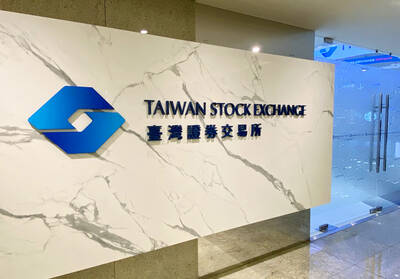The government's decision to consider labeling genetically modified food and agriculture products could have a significant effect on a market worth billions of NT dollars annually.
Chen Shu-kong (
Chen said government officials and scholars tend to support GM-labeling, while manufacturers harbor doubts about Taiwan's inspection technology and procedures.
However, much depends on the results of an ongoing international conference in Montreal on genetically modified food.
"We will abide by the global biotechnology trade treaty that is reached at the Biosafety conference currently being held in Canada," an official from the Council of Agriculture told the Taipei Times.
Soybean and corn are the major agricultural products containing genetically modified genes. Most imported soybean and corn in Taiwan is used for the production of animal feed and edible oil, and a small portion is used to make food such as bean curd and soybean products.
According to statistics provided by the Food Industry Research & Development Institute, a government sponsored research organization, the annual production value of animal feed and edible oil is approximately NT$54 billion and NT$18 billion respectively.
Last year, Taiwan imported US$480 million of soybean and NT$17 billion of corn from the US.
According to the American Soybean Association, approximately 30 percent of the soybean imported from the US is GM.
"Should the government decide to label GM foods ... this will have a great impact on Taiwan's food companies," said an official from the association.
If consumers decide not to buy GM foods, then food companies will have to use non-GM grain as their raw material. According to the official, imported non-GM soybean is 40 percent more expensive than GM soybean.
An official from Uni-President, one of the leading local soy sauce manufacturers, said the company was unaware that the government is considering labeling GM food. As a result, they have yet to make any plans in response.
But Great Wall Group, Taiwan's largest animal feed manufacturer, is not perturbed by any such government decision.
"I don't think animal feed will be required to be labeled. So I don't think our company will be affected," said Mark Han, president of the group. Anyway, Han said, labeling will have a bigger effect on food products that are consumed directly by consumers.

Taiwan Semiconductor Manufacturing Co (TSMC, 台積電) secured a record 70.2 percent share of the global foundry business in the second quarter, up from 67.6 percent the previous quarter, and continued widening its lead over second-placed Samsung Electronics Co, TrendForce Corp (集邦科技) said on Monday. TSMC posted US$30.24 billion in sales in the April-to-June period, up 18.5 percent from the previous quarter, driven by major smartphone customers entering their ramp-up cycle and robust demand for artificial intelligence chips, laptops and PCs, which boosted wafer shipments and average selling prices, TrendForce said in a report. Samsung’s sales also grew in the second quarter, up

LIMITED IMPACT: Investor confidence was likely sustained by its relatively small exposure to the Chinese market, as only less advanced chips are made in Nanjing Taiwan Semiconductor Manufacturing Co (TSMC, 台積電) saw its stock price close steady yesterday in a sign that the loss of the validated end user (VEU) status for its Nanjing, China, fab should have a mild impact on the world’s biggest contract chipmaker financially and technologically. Media reports about the waiver loss sent TSMC down 1.29 percent during the early trading session yesterday, but the stock soon regained strength and ended at NT$1,160, unchanged from Tuesday. Investors’ confidence in TSMC was likely built on its relatively small exposure to the Chinese market, as Chinese customers contributed about 9 percent to TSMC’s revenue last

Taiwan and Japan will kick off a series of cross border listings of exchange-traded funds (ETFs) this month, a milestone for the internationalization of the local ETF market, the Taiwan Stock Exchange (TWSE) said Wednesday. In a statement, the TWSE said the cross border ETF listings between Taiwan and Japan are expected to boost the local capital market’s visibility internationally and serve as a key for Taiwan becoming an asset management hub in the region. An ETF, a pooled investment security that is traded like an individual stock, can be tracked from the price of a single stock to a large and

Despite global geopolitical uncertainties and macroeconomic volatility, DBS Bank Taiwan (星展台灣) yesterday reported that its first-half revenue rose 10 percent year-on-year to a record NT$16.5 billion (US$537.8 million), while net profit surged 65 percent to an unprecedented NT$4.4 billion. The nation’s largest foreign bank made the announcement on the second anniversary of its integration with Citibank Taiwan Ltd’s (花旗台灣) consumer banking business. “Taiwan is a key market for DBS. Over the years, we have consistently demonstrated our commitment to deepening our presence in Taiwan, not only via continued investment to support franchise growth, but also through a series of bolt-on acquisitions,” DBS